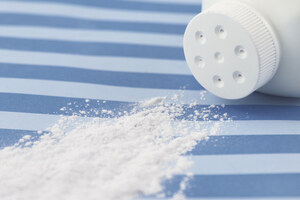 Why now? What happened?
Why now? What happened?
Three things are key to understanding this newly changed situation. First, Judge Shipp took over the case in February 2023 after the retirement of former Chief District Judge Freda Wolfson. Judge Wolfson had overseen the litigation since 2016.
In 2020, she allowed plaintiffs to present expert testimony that J&J's talc products can cause cancer based on epidemiological studies, as well as testimony that the link could be caused by talc's contamination with asbestos and heavy metals. This was a big win for the plaintiffs.
The litigation was on hold from 2021 to 2023 while J&J pursued an unsuccessful strategy to force settlement through the bankruptcy of its subsidiary LTL Management. Trials have since resumed, but the latest case, Sugarman v. Johnson & Johnson ended in a mistrial on March 5.
Second, the lawsuits are heavily reliant on expert testimony. J&J and surrogates have, throughout the litigation, argued that the scientific evidence offered by the plaintiffs relies on “some heavily simplistic extrapolations.” Newer studies also dispute the link between talcum powder use and ovarian cancer.
Third, effective as of December 1, 2023, a major change in federal rules of evidence governing expert testimony, now emphasizes the courts' discretionary role in vetting experts' conclusions and methodology before allowing them to present evidence to a jury. It essentially gives the judge the last word about the reliability of scientific evidence. Defendants like J&J hope that the change will shield them from disputed data.
New expert evidence rules seem to change the roles of judge and jury
Federal rule of evidence 702 which governs expert testimony has remained largely unchanged for 25 years. In the latest amendment, however, two bits of significant language have been added (italicized below for emphasis):
READ MORE TALCUM POWDER LEGAL NEWS
- the expert’s scientific, technical, or other specialized knowledge will help the trier of fact to understand the evidence or to determine a fact in issue;
- the testimony is based on sufficient facts or data;
- the testimony is the product of reliable principles and methods; and
- the expert’s opinion reflects a reliable application of the principles and methods to the facts of the case.”
- Expert witnesses must now provide more robust and thorough explanations of how their expertise applies to the case, ensuring that their testimony is more likely than not to meet the rule's requirements;
- Both plaintiffs and defendants can expect more challenges to expert witnesses; and
- Judges may take a more active role in vetting expert testimony before it reaches a jury. This could lead to more pre-trial hearings focused on the admissibility of expert evidence.
On the other hand, some argue that the new rules demonstrate a lack of confidence in the jury system, a fundamental principle of common law. The new role of the judge in vetting evidence may usurp the jury’s traditional role in weighing the facts.
Far ranging implications
The changes are still very new and the implications are still a matter of speculation, but all eyes are turned toward class action lawsuits. The 53,796 talcum powder lawsuits consolidated in the District of New Jersey may provide an early indication of whether courts are likely to apply new Rule 702 rigidly. If so, shallow-pocketed plaintiffs may find it more difficult to achieve class certification and present essential scientific evidence.
